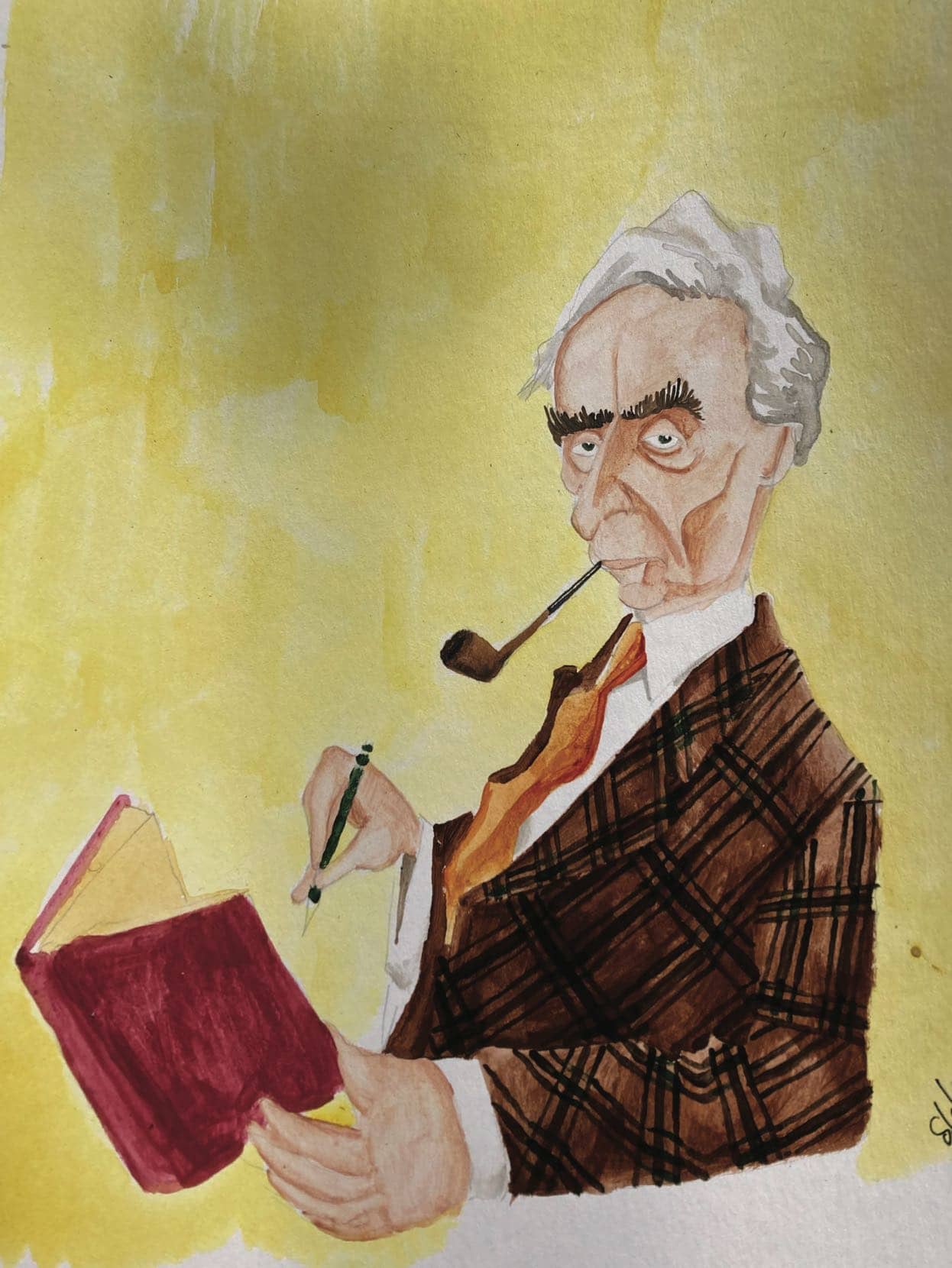
Ali: There can’t be real paradoxes, can there? Those that purport to be paradoxes actually contain ambiguities in meaning, neglected information, hidden assumptions… In short, it’s all smoke and mirrors.
Bev: You might think so. However, Russell’s Paradox in set theory has attracted a lot of serious attention in the literature. In fact, Gottlob Frege, a leading logician and mathematician at the time, felt that this paradox devastated his fundamental work on set theory and the foundations of mathematics.
Ali: So if Russell’s Paradox holds up, it would, rather worryingly, shake the foundations of mathematics?
Bev: Right. So let’s see what is involved. We all know – or think we know – what a ‘set’ is: a collection of all those and only those entities with a defined property. A set’s members can be simple objects, or can be sets themselves. It’s the last possibility we’re interested in here. Sets can also be non-self-membered, or self-membered: they can belong to themselves, or not. Examples of the former would include the set of all finite sets, which is infinite and hence non-self-membered. On the other hand, the set of all infinite sets is itself infinite and so must be included in itself, so it is self-membered. All sets either are non-self-membered or self-membered.
Ali: OK… But I feel like I’m about to be trapped, or perhaps conned.
Bev: Well consider the set of all non-self-membered sets, which for the sake of argument, let’s call ‘N’.
Ali: Hang on! Does such a set even exist?
Diese Geschichte stammt aus der April/May 2022-Ausgabe von Philosophy Now.
Starten Sie Ihre 7-tägige kostenlose Testversion von Magzter GOLD, um auf Tausende kuratierte Premium-Storys sowie über 8.000 Zeitschriften und Zeitungen zuzugreifen.
Bereits Abonnent ? Anmelden
Diese Geschichte stammt aus der April/May 2022-Ausgabe von Philosophy Now.
Starten Sie Ihre 7-tägige kostenlose Testversion von Magzter GOLD, um auf Tausende kuratierte Premium-Storys sowie über 8.000 Zeitschriften und Zeitungen zuzugreifen.
Bereits Abonnent? Anmelden

Metaphors & Creativity
Ignacio Gonzalez-Martinez has a flash of inspiration about the role metaphors play in creative thought.

Medieval Islam & the Nature of God
Musa Mumtaz meditates on two maverick medieval Muslim metaphysicians.

Robert Stern
talks with AmirAli Maleki about philosophy in general, and Kant and Hegel in particular.

Volney (1757-1820)
John P. Irish travels the path of a revolutionary mind.

IT'S A WONDERFUL LIFE
Becky Lee Meadows considers questions of guilt, innocence, and despair in this classic Christmas movie.

"I refute it thus"
Raymond Tallis kicks immaterialism into touch.

Cave Girl Principles
Larry Chan takes us back to the dawn of thought.

A God of Limited Power
Philip Goff grasps hold of the problem of evil and comes up with a novel solution.

A Critique of Pure Atheism
Andrew Likoudis questions the basis of some popular atheist arguments.

Exploring Atheism
Amrit Pathak gives us a run-down of the foundations of modern atheism.